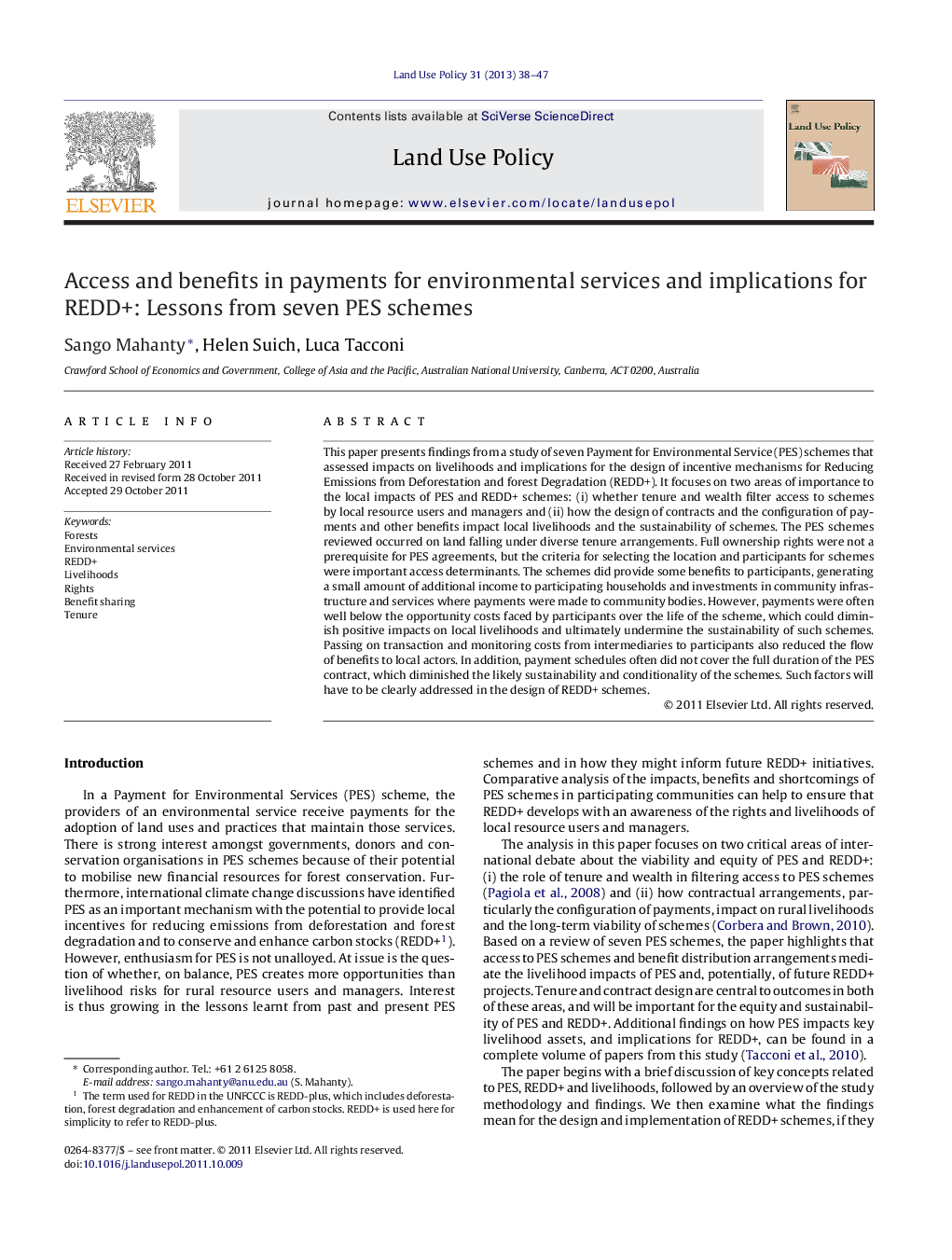| کد مقاله | کد نشریه | سال انتشار | مقاله انگلیسی | نسخه تمام متن |
|---|---|---|---|---|
| 93062 | 160112 | 2013 | 10 صفحه PDF | دانلود رایگان |
This paper presents findings from a study of seven Payment for Environmental Service (PES) schemes that assessed impacts on livelihoods and implications for the design of incentive mechanisms for Reducing Emissions from Deforestation and forest Degradation (REDD+). It focuses on two areas of importance to the local impacts of PES and REDD+ schemes: (i) whether tenure and wealth filter access to schemes by local resource users and managers and (ii) how the design of contracts and the configuration of payments and other benefits impact local livelihoods and the sustainability of schemes. The PES schemes reviewed occurred on land falling under diverse tenure arrangements. Full ownership rights were not a prerequisite for PES agreements, but the criteria for selecting the location and participants for schemes were important access determinants. The schemes did provide some benefits to participants, generating a small amount of additional income to participating households and investments in community infrastructure and services where payments were made to community bodies. However, payments were often well below the opportunity costs faced by participants over the life of the scheme, which could diminish positive impacts on local livelihoods and ultimately undermine the sustainability of such schemes. Passing on transaction and monitoring costs from intermediaries to participants also reduced the flow of benefits to local actors. In addition, payment schedules often did not cover the full duration of the PES contract, which diminished the likely sustainability and conditionality of the schemes. Such factors will have to be clearly addressed in the design of REDD+ schemes.
► PES schemes can work on common property, but need formal access and/or management rights.
► Collective benefits were rarely provided when individual contracts were used.
► Criteria to select scheme location and eligibility were key access determinants.
► PES payments often ended early in the contract, creating low conditionality.
► PES payments were usually unrelated to opportunity costs.
Journal: Land Use Policy - Volume 31, March 2013, Pages 38–47
